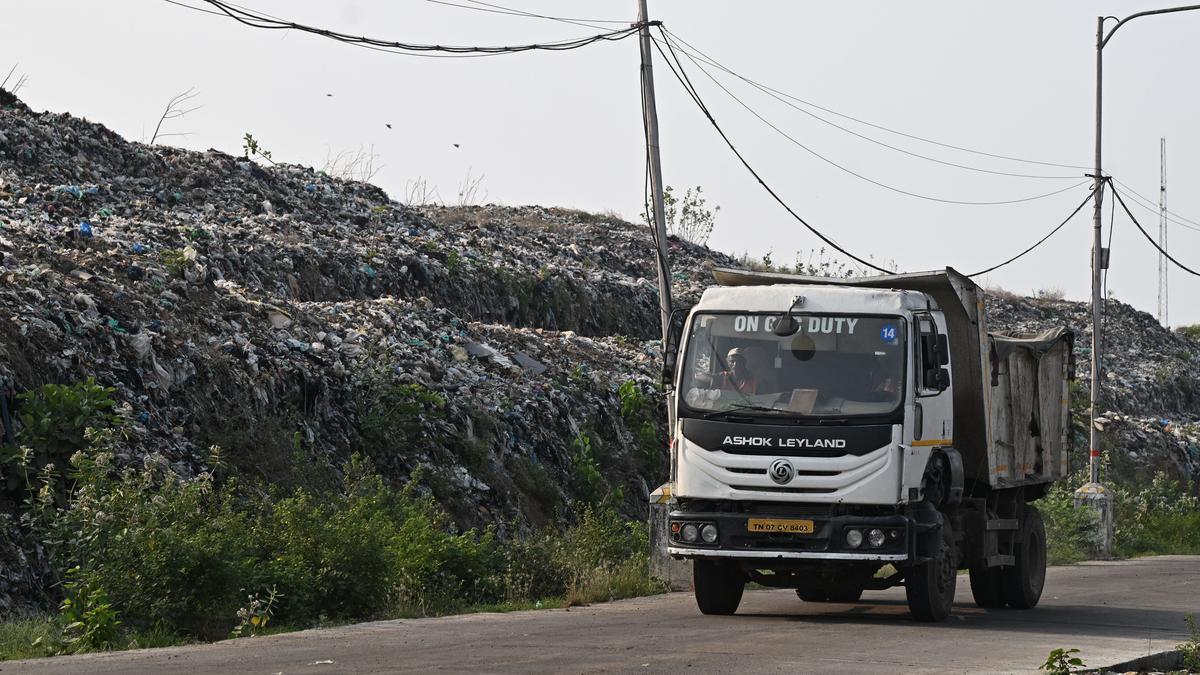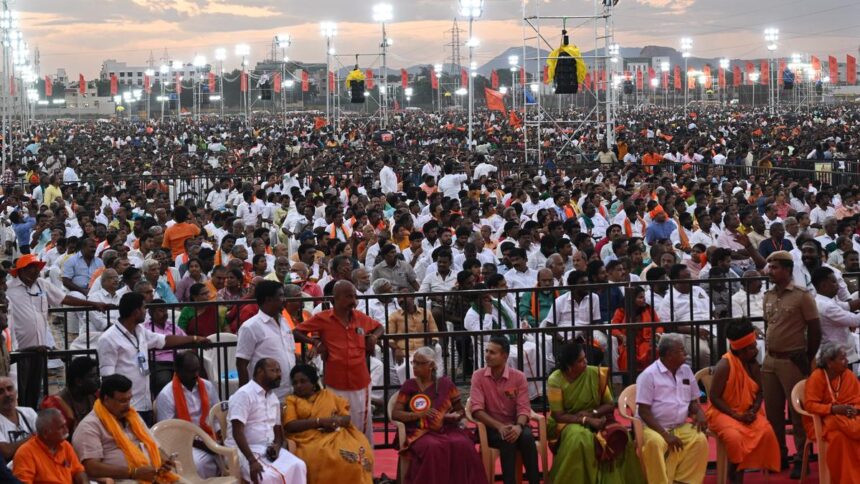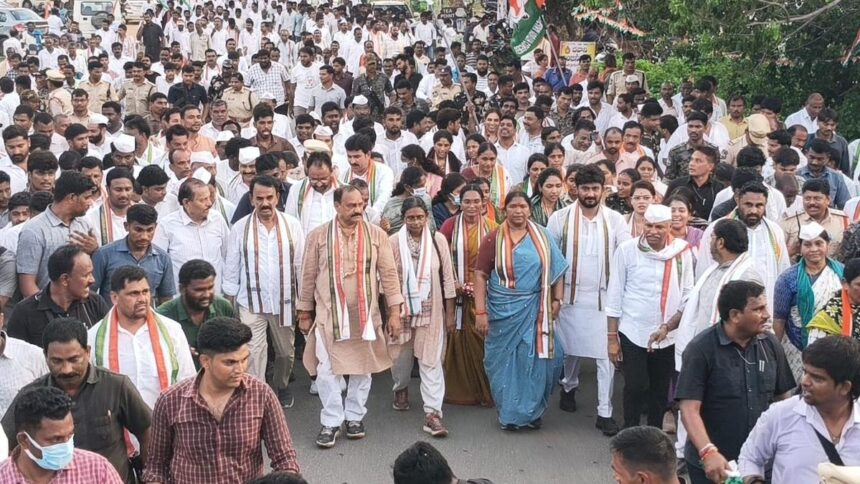
The Perungudi dump yard is located in the Pallikaranai marshland, a designated Ramsar site since 2022.
| Photo Credit: B. JOTHI RAMALINGAM
In a bid to protect the Pallikaranai marshland, one of the important wetlands on the Indian Ramsar list, a cross-section of residents along the IT Corridor has opposed the integrated waste management projects proposed by the Greater Chennai Corporation (GCC) in Perungudi. The civic body has planned to develop a pilot project of an integrated solid waste management facility in an eight acre area of the Perungudi dumpyard in three months.
Federation of Thoraipakkam Residents’ Welfare Associations president A. Francis said the residents have opposed the move to set up the pilot project as it will affect the marshland, which is an important wetland of international importance. “We opposed the project for setting up an eco park in 93 acres after biomining of the legacy waste. We wanted the marshland to be restored to the original condition after biomining. Once the Pallikaranai marshland is restored after GCC stops dumping, flood risk for the entire city will reduce. If the GCC goes ahead with the project, the flood risk will increase. Residents will start a campaign shortly, according to the wetland pledge popularised by the Ministry of Environment, Forests and Climate Change, reminding citizens about their fundamental duties towards wetlands,” he said.

President of Sholinganallur Constituency Residents’ Welfare Associations D. Raman said the dumpyard in the marshland has blocked the floodwaters during the northeast monsoon, causing flooding in areas such as Velachery, Madipakkam, Pallikaranai and several areas of the city.
Bhuvana Raj of Federation of OMR Resident Associations’ ECOWatch, cited the Solid Waste Management (SWM) Rules, 2016, which require a 200-metre buffer zone for waste disposal sites from water bodies. “Construction and demolition debris and garden waste are also brought to the dump yard that is close to an ecologically sensitive area, and there is no transparency on where or how this waste is processed. The GCC must ensure that the regulations are adhered to,” she added.

Ms. Bhuvana was among many who, in February 2024, opposed an ₹185.42-crore eco-park project proposed on the reclaimed land in Perungudi dumpyard. Subsequently, in November 2024, the Chennai Corporation (GCC) withdrew this proposal.
T.D. Babu, a marine biologist and environmental auditor, said the Pallikaranai marshland has already shrunk and the portion active now is only 5% of the original size. “The reclaimed land is technically part of the marshland. The infrastructure to process fresh waste is necessary, but the location is not ideal, especially since it is ecologically sensitive. Such wetlands cannot be recreated or mimicked. Sponge parks are only percolation pits with restricted capacity, which is not as good as the natural capacity. There is a global-level call to protect environmentally sensitive areas to reduce flooding. But such projects would only add to existing inundation problems,” he said.

He said source segregation must be pushed for, and garbage processing must be decentralised. The Detailed Project Report for such infrastructure must be formulated with the surrounding ecosystem in mind, he added.
The residents who have been protesting for three decades against the dumping of waste in Perungudi dumpyard have successfully managed to persuade the Chennai Corporation to hand over a portion of the marshland in the southern part of Thoraipakkam Pallavaram Radial Road to the Forest Department.
Published – August 31, 2025 09:05 pm IST




















